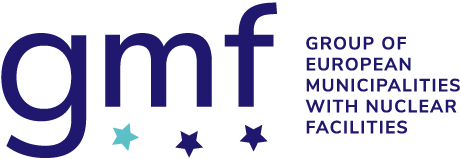
GMF projects
GMF launches and contributes to different European projects. Below are outlines of the projects in which GMF has participated.
GMF contributed actively in the development of the DG ENER funded project “Implementation of nuclear and radiological emergency preparedness and response requirements in EU Member States and neighbouring countries”(2021-2022) prepared by the consortium led NucAdvisor, with ENEA (Italy), VUJE (Slovakia) and EK (Hungary). As a result of this study, a guide with 6 recommendations for the European Commission to improve cross-border cooperation, the involvement of civil society and the improvement of the protection strategy was developed.
The full report is available at this link.
This project aimed to assist in identifying some of the key remaining socio-political challenges with regard to the implementation of geological disposal, and investigated in greater depth the relationship between these social challenges and the technological challenges.
The main objectives of the project were to:
- identify and clarify socio-political challenges for implementing geological disposal, within their national context (including technical challenges)
- develop further analytical insights into these challenges by means of a number of case studies, analysis of which would focus on selected topics related to the interplay between technical and socio-political challenges.
- advance and facilitate mutual learning, and advise and assist scientists and technological experts to develop the tools and the ability to communicate in a two way process about their work and to engage with stakeholders on technical and safety issues (e.g. challenges identified in the PAMINA project) on communicating about safety cases.
- advise the Implementing Geological Disposal Technology Platform (IGD-TP) on how to strengthen its position and message to the world of decision-makers.
In the framework of the ENEF and with the support of the European Economic and Social Committee (EESC) and a wide range of organisations in the field of energy, GMF launched in 2012 the Spanish Energy Mix Forum (SEMF) to explore the possibility of setting up a national energy dialogue.
SEMF was a pilot project resulting from the collaboration of the European and the local levels which lasted until June 2013.
The main aim of SEMF was to establish a framework to reflect on strategic guidelines for a future debate on the energy mix. The Forum had not the ambition to influence decisions on energy policy, but to suggest general guidelines to frame a debate on energy.
This initiative contributed to demonstrate that it is possible to structure a real social debate on energy in Spain. An organised, calm and participatory debate on energy is possible and necessary, if the aim is to be more competitive, reach stabilised prices, ensure energy supply and involve the public in the implementation of decisions.
GMF conducted the the pilot project “Local competence building and public information in European Nuclear territories”(2007-2008), promoted by GMF and partly financed by Directorate General Energy of the European Commission.
The objectives of this project were to identify local good practices at European level with regards to governance in the nuclear field and to provide a methodological framework to recommend good practices and establish a set of indicators.
The results of this project were, among others, the following ten recommendations for good governance in nuclear territories:
- To clearly define ‘the concerned people’ with special provisions as regards information and participation.
- To establish an effective legal or/and institutional framework for information provision and public participation.
- To ensure provision and dissemination of transparent, plural and reliable information by independent experts in lay terms.
- To create tools for public participation (LICs, partnerships, etc) around nuclear facilities.
- To ensure effective communication channels between the different political spheres – national decision-makers and local authorities.
- To ensure that the know-how of nuclear municipalities is effectively transferred and taken into account in the decision-making process (I).
- To guarantee sufficient resources for nuclear areas to undertake information and participation procedures (I + P).
- To promote training programmes for competence building (I).
- To promote mechanisms for the exchange of information / experiences on safety, stakeholder involvement and local development at EU level.
- To ensure that municipal practices on information and participation are independently reviewed and disseminated.
These recommendations were the basis for the development of 22 recommendations issued by the Working Group Transparency of the European Nuclear Energy Forum (ENEF) to improve practices on information, communication, participation and decision-making in nuclear matters.
COWAM was a series projects which aimed to contribute to the actual improvement of the governance of radioactive waste management in Europe.
A major dimension of radioactive waste remains the fact that waste management is a global problem looking for a local solution.
Local representatives of GMF were involved in COWAM, COWAM 2 and COWAM In Practice (CIP), providing their experience to develop good practices and guidance for the application of inclusive governance of radioactive waste management approaches in the EU.
The Coordination Action OBRA aimed at assessing the feasibility of creating an Observatory for long-term governance on radioactive waste management in Europe.
OBRA explored whether such an Observatory would be a useful mechanism for all stakeholders firstly, to access to the knowledge generated by successive EU research programmes, both in scientific and social sciences fields; secondly, to promote the most appropriate forms of interaction between them and thirdly, to jointly define how results from research, training and development in radioactive waste management and disposal are formulated and how their dissemination is managed. A vision and strategy of the Observatory were developed.
